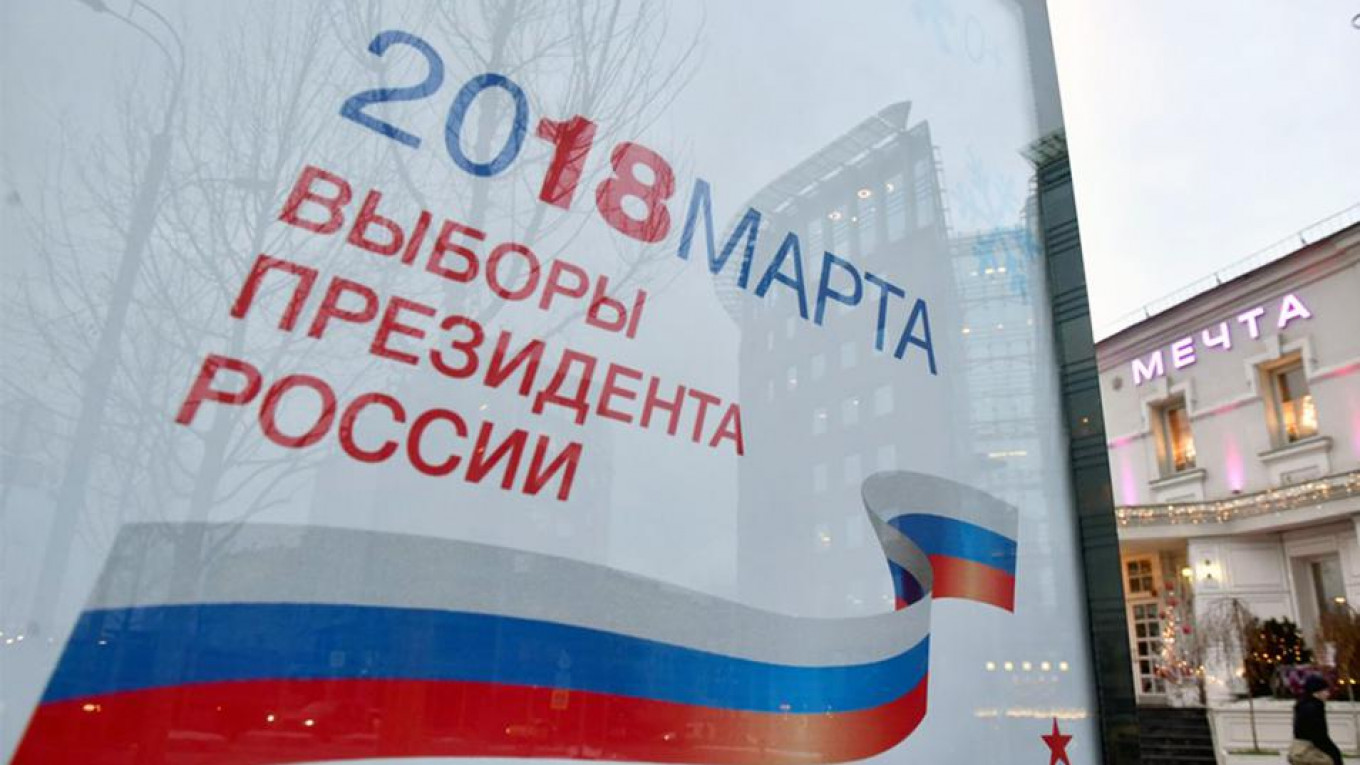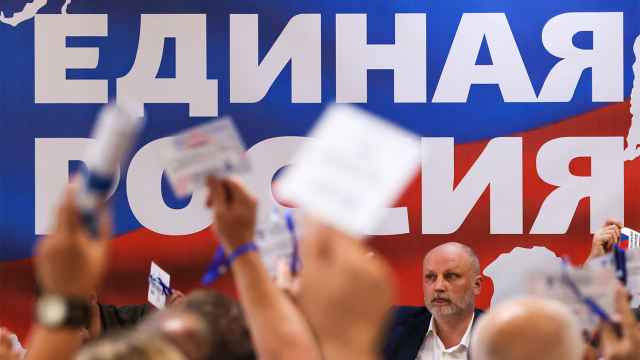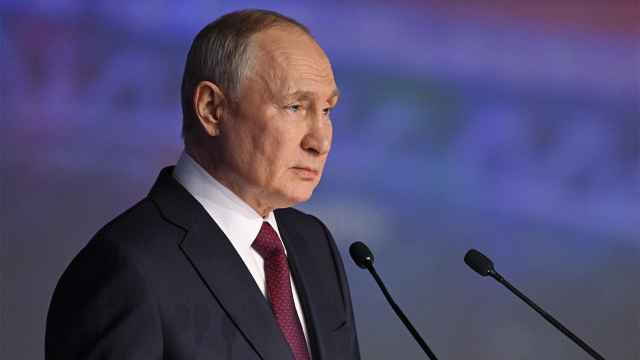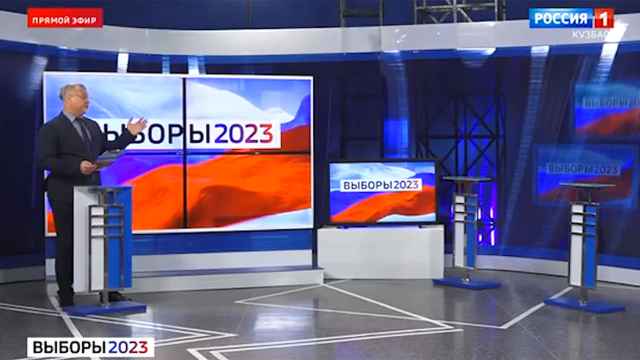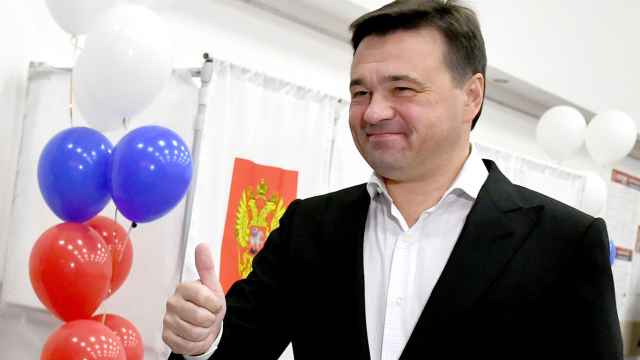Sanctions imposed by the West after Russia’s annexation of Crimea, the doping scandal and the decline in Russians’ living standards at home mean the president must now prove to the world that he enjoys the unconditional support of the majority. His legitimacy might be the only capital Russia has left.
For that, the Kremlin will need international and national monitors. The presidential administration could, of course, decide to obstruct the OSCE Office for Democratic Institutions and Human Rights as it did in 2007-08 or bar the Golos election monitoring NGO as it did in 2011-12. But that looks unlikely.
The upcoming presidential elections differ from thоse in 2012 in multiple ways: The country, the composition of the Central Elections Commission (CEC) and electoral laws have all changed.
In fact, changing the rules ahead of every federal election has become something of a tradition in Russia. Golos has calculated that the authorities introduced 15 amendments to presidential election legislation between 2012 and 2017. In total, 59 out of the law’s 87 articles and all four appendices have been changed.
Two of those changes have important implications for the participation threshold. First, the number of signatures required from candidates from non-parliamentary parties and independent candidates has been lowered to 100,000 and 300,000, respectively.
Second, in what is an obvious attempt to prevent political opponents such as Alexei Navalny and Mikhail Khodorkovsky from entering the race, there is an excessively harsh policy that bars candidates with a criminal record from running for office for up to 15 years.
The refusal to register them will likely damage the integrity of the election and could lead to unrest. But the Kremlin is apparently willing to accept the fallout as the lesser of two evils.
The voter turnout is going to be an important indicator these elections. The turnout for State Duma elections fell sharply from 60 percent in 2011 to 48 percent in 2016 — reflecting either the electorate’s waning interest or less tinkering with the results.
It will be difficult for authorities to reach the 65-percent turnout of 2012. This means they will have to find unconventional ways of getting people to vote and observers will have to monitor those efforts closely for possible abuses.
For example, the CEC estimates that as many as 5 million voters could use a new and vastly more convenient process to register at a specific polling station online. But the system could be abused by bosses at state companies who could coerce their employees into selecting a polling station under their control.
Surveillance cameras will be an important policing instrument. There will be cameras at all polling stations, as in 2012, as well as at election commissions’ regional branches. The “Live Turnout” project also allows anyone to help record the actual turnout in real time. And observers from anywhere in the world can monitor voting in regions with a supposed 90-percent turnout, such as Dagestan or the Kuznetsk Basin, without traveling there.
The presence of observers from federal and regional Public Chambers is a more “exotic” innovation. Although they are supposedly independent, it is no secret that most Public Chamber members are appointed by the authorities. In fact, the authorities could come up with countless “public” observers simply to claim that monitors were in place at all 95,000 polling stations. Meanwhile, civil society organizations are not allowed to send monitors directly to polling stations themselves.
Another change since 2012 is the staff reshuffle at the CEC. Vladimir Churov, who oversaw the scandalous 2012 elections, fell out of favor with the Kremlin and was replaced with Ella Pamfilova, who had a better reputation. Some accuse her of sweeping existing problems under the carpet, while others argue she is simply doing what she can to correct the country’s rotten electoral system against resistance from other Commission members and officials.
As usual, the authorities will go out of their way to show that everything proceeds fairly on Election Day itself. It is up to observers, therefore, to shine a light on the entire electoral process: on the abuse of administrative resources, and on whether candidates are allowed to run, are given equal airtime or are obstructed during their campaigns.
For example, the presidential administration is not responsible for managing the elections, appointing election commission officials, selecting political strategists or distributing financing to candidates. There are serious grounds for believing they are doing all this, however. Even more surprisingly, the public now considers it acceptable.
Today, observers should not only respond to violations, they must also take proactive and preventative action. Educating voters is the core of that work. Observers should teach citizens to defend their rights so it becomes natural for them to do the same.
Luckily, many organizations stand ready to help. Russia now has a powerful movement of monitors that have emerged from past presidential elections. But fighting political corruption will require society’s broader support.
Grigory Melkonyants is co-chairman of the independent Golos election monitoring group. The views and opinions expressed in opinion pieces do not necessarily reflect the position of The Moscow Times.
This article first appeared in our special “Russia in 2018” print edition. For more in the series, click here.
A Message from The Moscow Times:
Dear readers,
We are facing unprecedented challenges. Russia's Prosecutor General's Office has designated The Moscow Times as an "undesirable" organization, criminalizing our work and putting our staff at risk of prosecution. This follows our earlier unjust labeling as a "foreign agent."
These actions are direct attempts to silence independent journalism in Russia. The authorities claim our work "discredits the decisions of the Russian leadership." We see things differently: we strive to provide accurate, unbiased reporting on Russia.
We, the journalists of The Moscow Times, refuse to be silenced. But to continue our work, we need your help.
Your support, no matter how small, makes a world of difference. If you can, please support us monthly starting from just $2. It's quick to set up, and every contribution makes a significant impact.
By supporting The Moscow Times, you're defending open, independent journalism in the face of repression. Thank you for standing with us.
Remind me later.



